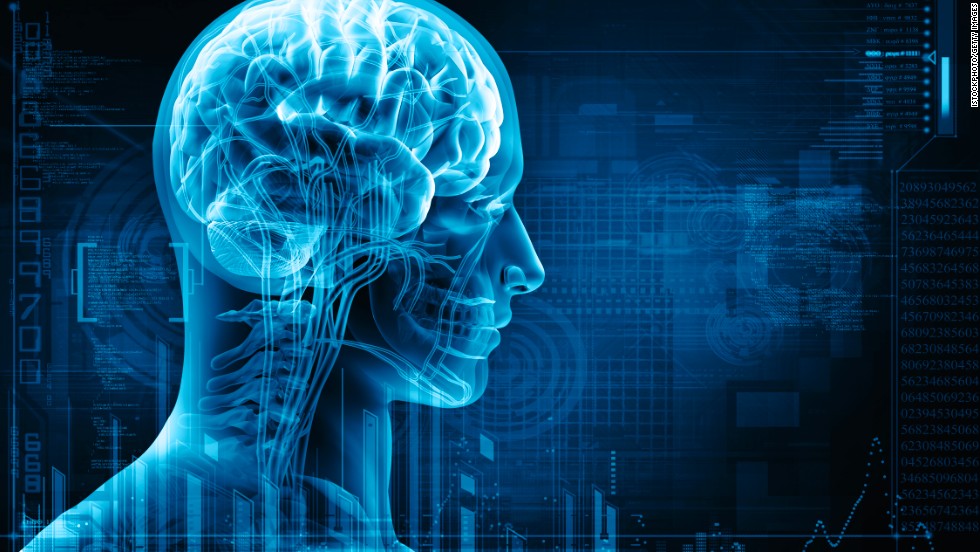Begin quote from:
To improve your memory, get moving ... or take a nap - CNN.com
www.cnn.com/2016/06/29/health/improve-memory-exercise-sleep/...Jun 29, 2016 ... Scientists have unlocked new secrets for boosting memory retention: One involves exercise, and the other involves taking a nap.To improve your memory, get moving ... or take a nap | Center for...
www.brainhealth.utdallas.edu/news_page/to-improve-your-memor...Jun 29, 2016 ... Scientists have unlocked new secrets for boosting memory retention: One involves breaking a sweat, and the other involves taking a snooze.To improve your memory, get moving ... or take a nap
By Jacqueline Howard, CNNUpdated 9:11 AM ET, Wed June 29, 2016 Study: Sleep sharpens memory 00:43
Study: Sleep sharpens memory 00:43Story highlights
- Exercising about four hours after learning something may improve how well you remember it
- Taking a nap immediately after learning something can also help your memory retention
(CNN)Scientists have unlocked new secrets for boosting memory retention: One involves breaking a sweat, and the other involves taking a snooze.Exercising about four hours after you learn something can improve how well you remember it, according to a small study published in the journal Current Biology this month.Of course, working out on the regular has long been associated with enhanced memory and thinking skills. The new findings, however, offer a specific time window for taking an acute advantage of this association, said Guillén Fernández, a co-author of the study and professor of cognitive neuroscience at the Donders Institute for Brain, Cognition and Behaviour in the Netherlands."In addition, it might lead to additional studies optimizing the delay and intensity of post-learning exercise to achieve best study success, which might be relevant for education," Fernández said. In other words, the study supports the idea that after-school sports can help students retain what was learned in the classroom.For the study, 72 men and women completed a task in which they watched 90 photos appear one-by-one on a screen for about 40 minutes. The participants were instructed to remember exactly where on the screen the pictures appeared.Next, the participants were separated into three groups. One group exercised immediately after completing the task. The second group exercised four hours after completing the task, and the third didn't exercise at all. The groups that exercised took part in a 35-minute interval training session on an exercise bike.Two days later, all of the participants completed a test measuring how well they remembered the picture locations. They did so while hooked up to an MRI scanner. Get more than a six-pack by working out 02:39What did the researchers find? It turned out that exercising immediately after learning the picture locations had no effect on memory retention, but waiting four hours resulted in a 10% increase in memory retention, on average.That's not all. The MRI scans revealed that, during the recall test, those who exercised after waiting a few hours had increased activity in their brains' hippocampus, a region associated with learning and memory."We have no conclusive answer why the immediate exercise didn't enhance memory," Fernández said, but he added that a follow-up study is underway to examine the influence that exercise has on memory in greater detail.If you'd rather nap than work out, you're in luck. Separate studies have shown that sleeping soon after learning something can also help you remember it."Sleep helps transform short-term memories into long-term memories by helping make stronger connections between these new experiences and our old memories, that allows the new experiences to be integrated with our general knowledge and understanding of the world," said Sara Mednick, a professor of psychology at the University of California, Riverside.Mednick led research, published in the Proceedings of the National Academy of Sciences this month, that describes the role the body's autonomic nervous system plays during sleep in memory consolidation, a process that many previously thought was just the work of the central nervous system.For the research, 81 men and women were asked to complete word problems in the morning. They also were "primed" with unrelated words in a separate exercise. Shortly after completing the task, 60 of the participants took a 90-minute nap while the rest watched a video. The researchers tracked the heart rate activity of the napping participants while they experienced rapid eye movement sleep to gauge the involvement of the autonomic nervous system. The autonomic nervous system regulates heartbeat.Later in the day, all of the participants were asked to complete word problems for a second time. These problems were either identical to the previous task or completely new, or the answers had been primed.The researchers noticed that the participants who had a nap were more likely than those who didn't nap to use the primed words to answer the problems, which suggests that they were thinking more "flexibly" to use the primed words in new ways. In fact, the researchers could account for up to 73% of the performance increase from the morning task to the second task by considering the REM and heart rate activity that was recorded during napping.Thus, the autonomic nervous system may be an unexplored contributor to how sleep can boost memory."Other studies have shown that delaying sleep after learning is not good for retention," Mednick said. "The current study suggests that both the mind and body are working together to improve memory."
Get more than a six-pack by working out 02:39What did the researchers find? It turned out that exercising immediately after learning the picture locations had no effect on memory retention, but waiting four hours resulted in a 10% increase in memory retention, on average.That's not all. The MRI scans revealed that, during the recall test, those who exercised after waiting a few hours had increased activity in their brains' hippocampus, a region associated with learning and memory."We have no conclusive answer why the immediate exercise didn't enhance memory," Fernández said, but he added that a follow-up study is underway to examine the influence that exercise has on memory in greater detail.If you'd rather nap than work out, you're in luck. Separate studies have shown that sleeping soon after learning something can also help you remember it."Sleep helps transform short-term memories into long-term memories by helping make stronger connections between these new experiences and our old memories, that allows the new experiences to be integrated with our general knowledge and understanding of the world," said Sara Mednick, a professor of psychology at the University of California, Riverside.Mednick led research, published in the Proceedings of the National Academy of Sciences this month, that describes the role the body's autonomic nervous system plays during sleep in memory consolidation, a process that many previously thought was just the work of the central nervous system.For the research, 81 men and women were asked to complete word problems in the morning. They also were "primed" with unrelated words in a separate exercise. Shortly after completing the task, 60 of the participants took a 90-minute nap while the rest watched a video. The researchers tracked the heart rate activity of the napping participants while they experienced rapid eye movement sleep to gauge the involvement of the autonomic nervous system. The autonomic nervous system regulates heartbeat.Later in the day, all of the participants were asked to complete word problems for a second time. These problems were either identical to the previous task or completely new, or the answers had been primed.The researchers noticed that the participants who had a nap were more likely than those who didn't nap to use the primed words to answer the problems, which suggests that they were thinking more "flexibly" to use the primed words in new ways. In fact, the researchers could account for up to 73% of the performance increase from the morning task to the second task by considering the REM and heart rate activity that was recorded during napping.Thus, the autonomic nervous system may be an unexplored contributor to how sleep can boost memory."Other studies have shown that delaying sleep after learning is not good for retention," Mednick said. "The current study suggests that both the mind and body are working together to improve memory." Photos: 6 ways to keep your brain young
Photos: 6 ways to keep your brain young




















 When it comes to exercise, however, the finding that delaying a workout after learning can improve retention is most intriguing, said Sandra Chapman, founder and chief director of the Center for Brain Health at the University of Texas at Dallas."The study highlights that elevating metabolic rate at a later stage, when information is moving from short-term memory to long-term memory, has more impact than immediately after information has been encoded," said Chapman, who was not involved in the study. "The design was elegant, suggesting that the benefit of exercise was still measurable in the hippocampi two days later."For now, the researchers concluded that delayed exercise may improve memory retention because working out can lead to the release of neurotransmitters in the brain called dopamine and noradrenaline.Previous studies have shown that these neurotransmitters, through a series of biochemical-related events, can help the brain more easily consolidate memories.
When it comes to exercise, however, the finding that delaying a workout after learning can improve retention is most intriguing, said Sandra Chapman, founder and chief director of the Center for Brain Health at the University of Texas at Dallas."The study highlights that elevating metabolic rate at a later stage, when information is moving from short-term memory to long-term memory, has more impact than immediately after information has been encoded," said Chapman, who was not involved in the study. "The design was elegant, suggesting that the benefit of exercise was still measurable in the hippocampi two days later."For now, the researchers concluded that delayed exercise may improve memory retention because working out can lead to the release of neurotransmitters in the brain called dopamine and noradrenaline.Previous studies have shown that these neurotransmitters, through a series of biochemical-related events, can help the brain more easily consolidate memories. Photos: Photos: Brain facts
Photos: Photos: Brain facts






















 "Research shows that exercise increases the size of the brain's memory center, known as the hippocampus," Chapman said. "Aerobic exercise in particular appears to increase levels of brain-derived neurotrophic factor, a protein that supports memory and is also linked to neurogenesis, the birth of new brain cells."This isn't the first time that such neurotransmitters (and certain activities) have been linked to enhancing memory. Separate research has found that having more sex may help promote better memory retention, and yes, dopamine is released when you're "getting busy."And coffee drinkers, this one's for you: Caffeine has been linked to enhanced memory, as well as the release of dopamine.Research has also shown that exercise can reduce insulin resistance and inflammation, as well as stimulate the release of neurotransmitters that support the health of brain cells.A study published this month in the journal Cell Metabolism found that blood levels of a protein associated with memory, called cathepsin B, increase after running. This finding ties running in particular to memory function.Dr. Thomas Wisniewski, professor of neurology at the NYU Langone Medical Center, also noted that exercise is good for both heart health and brain health, especially in older adults."Whatever is good for your heart is good for your brain. The general basis for that is that the brain is 1% to 2% of our body weight, but it takes 20% of cardiac output," said Wisniewski, who was not involved in the new study. "It's the most oxygen-hungry part of the body. So, if your cardiovascular system is fit, your brain is more fit."
"Research shows that exercise increases the size of the brain's memory center, known as the hippocampus," Chapman said. "Aerobic exercise in particular appears to increase levels of brain-derived neurotrophic factor, a protein that supports memory and is also linked to neurogenesis, the birth of new brain cells."This isn't the first time that such neurotransmitters (and certain activities) have been linked to enhancing memory. Separate research has found that having more sex may help promote better memory retention, and yes, dopamine is released when you're "getting busy."And coffee drinkers, this one's for you: Caffeine has been linked to enhanced memory, as well as the release of dopamine.Research has also shown that exercise can reduce insulin resistance and inflammation, as well as stimulate the release of neurotransmitters that support the health of brain cells.A study published this month in the journal Cell Metabolism found that blood levels of a protein associated with memory, called cathepsin B, increase after running. This finding ties running in particular to memory function.Dr. Thomas Wisniewski, professor of neurology at the NYU Langone Medical Center, also noted that exercise is good for both heart health and brain health, especially in older adults."Whatever is good for your heart is good for your brain. The general basis for that is that the brain is 1% to 2% of our body weight, but it takes 20% of cardiac output," said Wisniewski, who was not involved in the new study. "It's the most oxygen-hungry part of the body. So, if your cardiovascular system is fit, your brain is more fit."
To the best of my ability I write about my experience of the Universe Past, Present and Future
Top 10 Posts This Month
- Rosamund Pike: Star of New Amazon Prime Series "Wheel of Time"
- Belize Barrier Reef coral reef system
- SNAP rulings ease shutdown pressure as Thune rebuffs Trump call to end filibuster
- Flame (the Giant Pacific Octopus) whose species began here on earth before they were taken to another planet by humans in our near future
- Learning to live with Furosemide in relation to Edema
- Earthquake Scientists Say It's Time to Start Paying Attention to Antarctica
- I put "Blue Sphere" into the search engine for my site and this is what came up.
- Siege of Yorktown 1781
- Nine dead, dozens injured in crowd surge at Hindu temple in southern India
- John Travolta Finally Breaks His Silence
Sunday, March 12, 2017
To improve your memory, get moving ... or take a nap - CNN.com
- Jun 29, 2016 ... Scientists have unlocked new secrets for boosting memory retention: One involves exercise, and the other involves taking a nap.
- Jun 29, 2016 ... Scientists have unlocked new secrets for boosting memory retention: One involves breaking a sweat, and the other involves taking a snooze.
Subscribe to:
Post Comments (Atom)



































No comments:
Post a Comment